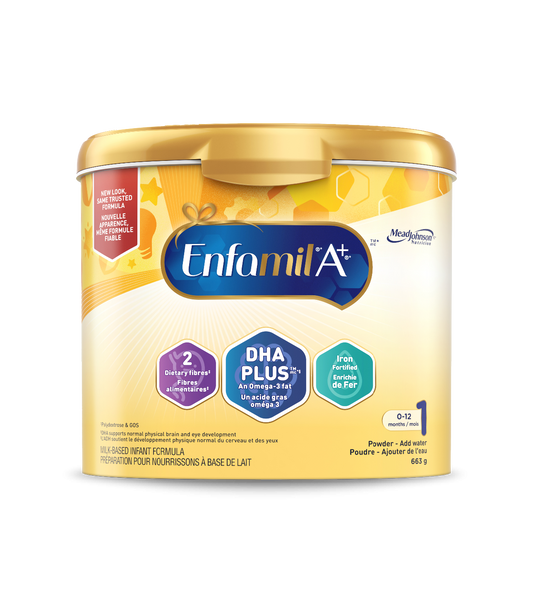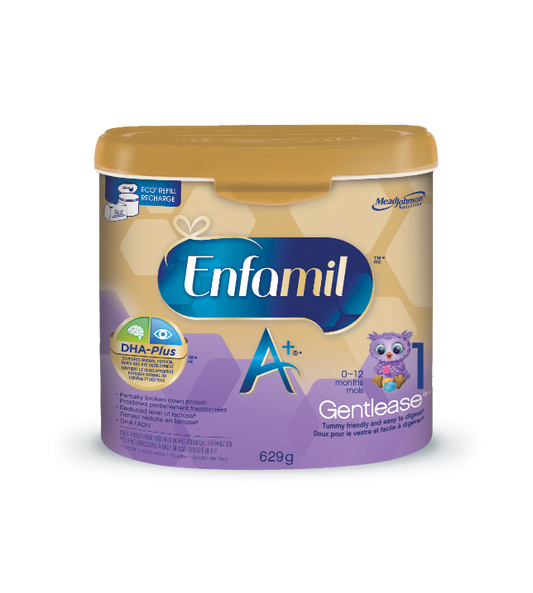SKIP TO CHAPTER

Parent’s reasons for formula-feeding or supplementing breastfeeding by adding bottle-feeding are varied, but their goals are similar: a healthy, growing baby who is meeting developmental milestones. Offering both breast milk and formula may work well for you and your baby. Here’s what it can help to know about this baby feeding option.
When it comes to breast-feeding compared to formula-feeding, don’t get hung up on that middle word versus. There’s a third option that can work surprisingly well: feeding your baby breast milk and formula
“After my second son was born, the sleepless nights and busy days caring for two little ones left me beyond exhausted. I decided to start supplementing with formula after discussing the options with our pediatrician, ”says Crystal M., of Twentynine Palms, California.“I was surprised how much my baby enjoyed the formula—it really settled him down at night time. Being able to share the feeding experience with my husband has made a tremendous difference for all of us.”
Recent consumer studies show that 9 out of every 10 new mothers use formula at some point during their baby's first year for a variety of reasons, including to provide extra nutrition, to share feeding duties and to facilitate returning to work. Some babies take to the bottle right away while others are more reluctant. Introducing a bottle may take some trial and error. Here are some tips to help make the transition easier.
Supplementing with Formula
Once breast-feeding is well-established, some moms find that giving an occasional bottle of formula provides welcome flexibility. Supplementing with baby formula allows you to leave your baby with a family member or a sitter, for example. This can be especially freeing for Moms who have trouble pumping. “I love that it lets my husband feed him and bond with him,” says Morristown, New Jersey, Mom Meghan F.
Formula can also work wonders for working Moms who can’t or don’t want to pump to make up all the feedings. Leanne H. of Waukesha, Wisconsin, who breast-fed exclusively for four months, says, “My job requires me to travel, and formula allows me to supplement feedings when I am away from my baby and Daddy is caring for her. It is a great feeling to know that she is getting the nutrition that she needs when I’m not there to provide it for her.”
Wondering about the nutrition your baby will receive from formula?Thanks to decades of research and scientific advancements, today’s infant formulas are closer to breast milk than ever before and contain the nutrients your baby needs to grow and thrive.
Starting to Supplement: How to Supplement with Formula?
Feeding your baby both breast milk and formula is also sometimes called mixed feeding, combination feeding,or partial breast-feeding. It’s always best to consult with your baby’s health care provider about your unique situation and feeding plans. But here are some supplementing tips that could be helpful to know:
-
In most cases,the optimal time to start supplementing with baby formula is after the first month so your milk supply is well established.
-
Time it right.Try offering a bottle when your baby is hungry(such as after a nap) but not famished, so he's less likely to fuss.
-
It may work better to let someone else, such as the baby’s father or grandfather, offer the first bottle. Your baby may associate you with strictly breast milk at first.
-
Some Moms get their babies used to the taste of formula by mixing it with breast milk. Or try putting some breast milk on the nipple to encourage your baby to accept the bottle.
-
Use a bottle nipple that resembles your baby's pacifier. Putting some breast milk on the nipple is another way to encourage your baby to accept the bottle. Once he tastes the breast milk, he may start sucking to get more.
-
Another way to supplement with formula is to let your baby nurse first and then finish off the feed with formula. Your baby may be more willing to take a bottle when he is hungry but not famished (and fussy).
-
Breastmilk supply is based on demand so make sure if your goal is to continue breastfeeding you keep up nursing or pumping while supplementing.
How to supplement with formula: choosing the right formula
-
Infants who are not breastfed should be given a formula that is iron-fortified with DHA and ARA (sources of Omega-3 and Omega-6 fats) for the first 9-12 months. DHA and ARA are nutrients naturally found in breast milk that support normal brain and eye development.
-
Experts recommend that all non-breastfed babies should receive a DHA-enriched formula with a DHA level of at least 0.2% of the total fatty acids. Enfamil A+® has a DHA level of 0.32%.
If I give my baby formula, will he receive the nutrients he needs to grow and develop?
Absolutely! Thanks to decades of research and scientific advancements, today's infant formulas are inspired by human milk and contain the nutrients your baby needs to grow and thrive.
How soon can I supplement with formula?
If you start breastfeeding (except for a bottle of formula per day or a few bottles per week), you may want to wait until your baby is at least 1 month old. By that point, your baby will likely have settled into breastfeeding and your milk supply should be well established. An occasional bottle shouldn't disrupt your routine.
How do you prepare a bottle of formula?
Different types of formula - powder, concentrated liquid or ready-to-feed liquid - are prepared differently. For powder or concentrated liquid formulas, follow the preparation instructions exactly as detailed on the packaging. For ready-to-feed formula, simply pour into the bottle and serve
Learning more about how to supplement with formula with our formula feeding shopping list










